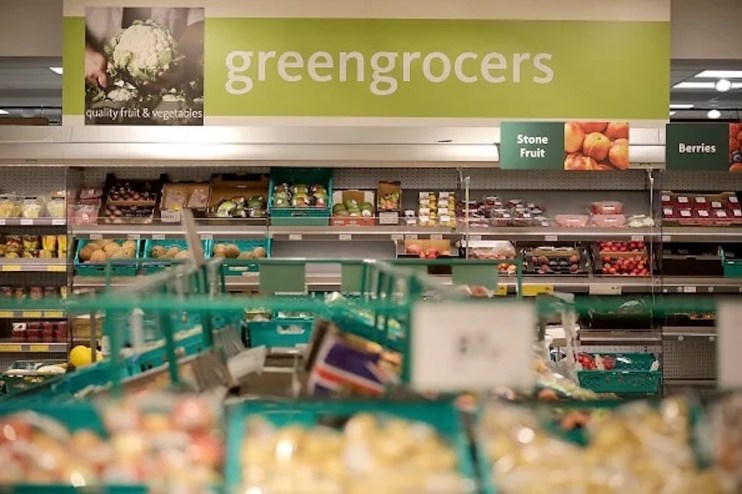UK inflation leaps to 10.4 per cent smashing Bank of England and City forecasts

UK inflation has surpassed forecasts and stayed in the double digits, in a sign the Bank of England will need to keep hiking interest rates to tame prices, official figures out today reveal.
The rate of price increases jumped to 10.4 per cent in February, up from 10.1 per cent in January, according to the Office for National Statistics (ONS).
City analysts had expected the rate to trim to 9.9 per cent and slip out of the double digits for the first time since last summer.
The rate is also above the Bank of England’s latest forecasts and is the biggest inflation overshoot since 2009.
Britain is now emerging as an outlier in the rich world, with most of its peers’ respective inflation rates steadily falling since the autumn.
In the US, inflation has not risen in around six months, while the eurozone rate has also been on a downward trajectory since its peak several months ago.
Federal Reserve officials are poised to announce another rate hike of 25 basis points later today to keep pushing down on stateside inflation, overlooking turmoil in the banking sector.
UK inflation is highest in rich world

It is the first time the inflation rate in the UK has risen since last October, when it hit a peak of 11.1 per cent, and breaks a three month falling streak.
Prices rose at a faster pace in February compared to January due to “rising alcohol prices in pubs and restaurants following discounting in January,” Grant Fitzner, chief economist at the ONS, said.
Food prices scaled more than 18 per cent over the last year, the quickest increase since records began, piling pressure on poorer households whose budgets are eaten up by the weekly shop.
Calculations from the New Economics Foundation which considered today’s data indicates most families will be substantially worse off by the next election due to the cost of living – except the richest.
Core inflation – seen as a more accurate measure of underlying and domestic price pressures – jumped on an annual and monthly basis, up to 6.2 per cent and 0.8 per cent respectively.
That jump indicates the initial price burst that was fuelled by Russia’s invasion of Ukraine driving international energy prices higher has spread to homegrown sectors, which is harder for policymakers to tame.
“The rebound in core inflation from 5.8 per cent to 6.2 per cent was most worrying,” Paul Dales, chief UK economist at consultancy Capital Economics, said.
Governor Andrew Bailey and the rest of the monetary policy committee are likely to interpret the figures as a signal that their aggressive fight to tame inflation over the last year “is not yet done,” Kitty Ussher, chief economist at the business lobby group the Institute of Directors, said.
However signs that the rate of price rises is back on rise could open the door for a larger increase. The Bank has opted for multiple back-to-back 50 point increases over the past year.
But Samuel Tombs, chief UK economist at consultancy Pantheon Macroeconomics, highlighted that core services inflation, tipped as a measure of the stickiest form of inflation, came in below the Bank’s expectations.
“The MPC still should be able to confidently predict that CPI inflation will fall sharply over the rest of this year—perhaps even back to the two per cent target—steering them away from a significant further increase in Bank Rate,” he said.
The pound strengthened around half a percentage point this morning on amplifying expectations of another rate rise from Bailey and co tomorrow. The FTSE 100 dipped around 0.2 per cent.
Chancellor Jeremy Hunt and Prime Minister Rishi Sunak have promised to halve inflation by the end of the year, something the Bank had already predicted in November, mainly because international gas prices have collapsed since they took off after Russia’s invasion of Ukraine.
“Falling inflation isn’t inevitable, so we need to stick to our plan to halve it this year,” Hunt said today.